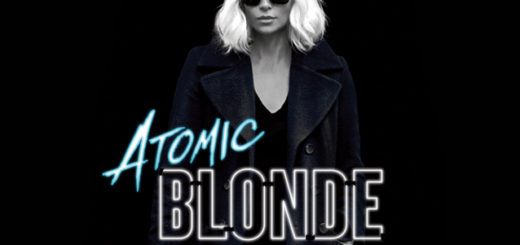THE BELKO EXPERIMENT Review
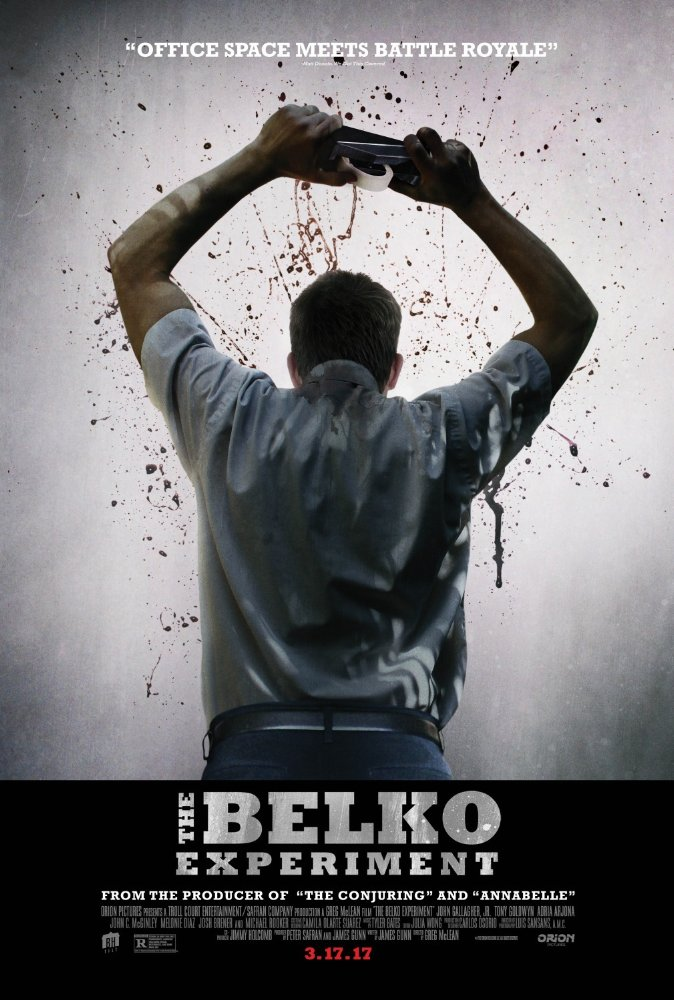
Director: Greg McLean
Genre: Horror
Year: 2017
I was excited when I first heard of THE BELKO EXPERIMENT. The thought of a bunch of white-collar drones going at each other’s throats with staplers and letter-openers was enough to get me on board for—what I expected to be—an over-the-top, blood-soaked black comedy. And yet, as the days before its release passed and I looked back on all the other similar movies before it (2006’s mostly enjoyable SEVERANCE, 2015’s gorgeous but muddled HIGH RISE), I found myself more in the “it’s going to suck” camp. However, while sitting in a theater with maybe a dozen others (two of them adults, half definitely not over 17), fully prepared to pan the hell out of this movie, I could not help but think, “Hey, this is actually pretty good!” Maybe the movie wouldn’t suck, I thought. Maybe I had fooled myself—it wouldn’t have been the first time. And, as the opening montage rolled by (a vehicle to introduce the film’s many characters, as well as the many trivialities and irritations of office life to the tune of a lovely Spanish cover of “I Will Survive”), I failed to notice that I had, in fact, been fooled. The irony of the song should have tipped me off; I hadn’t outsmarted myself, the movie outsmarted me.
Now, I need to stress a few things before this review goes completely off the rails. THE BELKO EXPERIMENT is not a bad movie. In fact, in many ways, it is quite good. For one, as I touched on above, the music is fantastic. Tyler Bates (who also scored JOHN WICK: CHAPTER 2, as well as writer James Gunn’s GUARDIANS OF THE GALAXY) has put together another great soundtrack that is very reminiscent of THE BIG LEBOWSKI. It’s hip, it’s eclectic, and even though it’s ironic to a degree that would cause some to describe it as “edgy,” it remains oddly fitting. Two, while the camerawork is rather utilitarian (and showcases some laughably bad CGI) much of the time, there are some moments of brilliance, including a clever nod to 2001: A SPACE ODYSSEY towards the end of the film. Three, what I believe to be the most notable aspect of THE BELKO EXPERIMENT, is the acting—it is really good. I was amazed (and mortified) by just how convincing some of the performances are, and how fully committed some actors were to their roles.
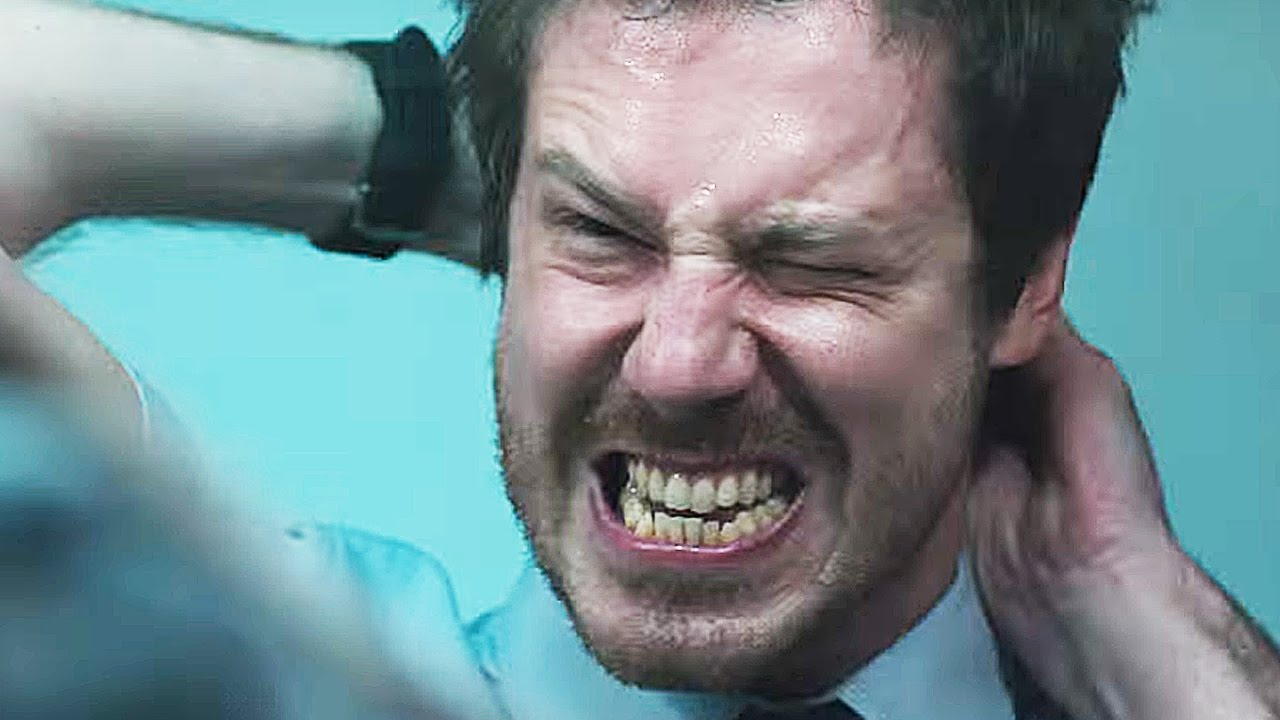
Sounds like somebody has a case of The Mondays
The cast, made up of several relative unknowns, rounded out by a sort-of who’s who of underrated, stalwart B-listers (Tony Goldwyn, John C. McGinley, personal favorite Michael Rooker), is huge, with each person bringing something to the table. Everyone occupies a different role—new girl, office gossipers, barely-functional stoner, resident lech, etc.—and the interplay across the various office castes is great. There is quite a bit of chemistry among the cast that feels very natural, making the office dynamics seem real. These are people we might work with. These could all be people we know and call coworkers, even friends. And that’s where it all goes bad. THE BELKO EXPERIMENT makes us care about these people. We root for them, we want these people to make it out okay—these people who, no matter what they do, no matter how hard they try, are going to die. Horrifically. With full knowledge of their impending doom.
The plot is simple. What would be just another day at the Bogotá location of Belko Industries, an international nonprofit organization, gets off to a weird start. All the local employees are turned away at the gate, leaving only 80 foreigners and a handful of heavily-armed guards on the premises for the day. Everyone jokes about taking the day off and screwing around, but then a voice comes over the intercom telling them to kill each other or be killed. A few people are shaken by the announcement, most laugh it off as a joke, a handful go get high on the roof (why not?), but then four heads explode and everything summarily goes to shit.
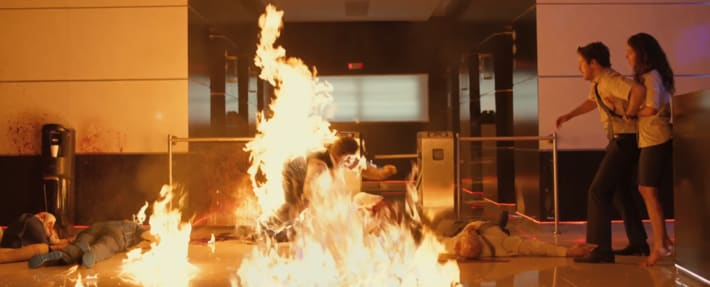
Pictured: everything going to shit
By now, THE BELKO EXPERIMENT has been called “OFFICE SPACE meets BATTLE ROYALE” (see poster above) enough times to—hopefully—reveal just how banal that platitude is. This comparison, while apt, is a rather lazy one, and one that kind of misses the point at that. OFFICE SPACE is, of course, a classic, an enduring satire that has resisted becoming totally dated by how deftly it handles the existential hell that is cubicle life with a carefree, organic wit and heart. The undeniably brutal BATTLE ROYALE, on the other hand, while not optimistic, is ultimately not cynical either, as we witness the last holdouts of love, compassion, and selflessness stand bravely in the face of senseless violence. THE BELKO EXPERIMENT shares none of these qualities. What little humor there is is quickly snuffed out by an overwhelming, overriding, very real terror, as is any faith in the overall goodness of humanity—not by the sheer meanness of its characters, but of the film itself. This is not a satire, it’s not black comedy, it’s not even juvenile nihilism. This is a mean-spirited movie, one that baits and switches the viewer. It is a baring of teeth disguised as a smile
Indeed, a better comparison could be made to that of the infamous Stanford Prison Experiment (peep the 2015 dramatization if you feel you aren’t currently hating humanity enough), in which student volunteers were assigned the role of either prisoner or prison guard. If you are unfamiliar, the experiment is notorious for having been called off after a mere six days, during which time the “guards” became violently aggressive, humiliating and torturing their “prisoner” peers to the point of psychological breakdown. These, of course, were fellow students. And that same might makes right mentality is the guiding principle of THE BELKO EXPERIMENT, except here the stakes are sufficiently high enough to immediately out each person as killer or victim and sweep them into their respective roles with zero chance of reasoning or reprieve.
The killers, ex-Special Forces COO and clear-as-day sociopath, Barry, axe-crazy maniac, Wendell, and a handful of craven lapdogs, round up their coworkers—their friends—in order to decide who will be executed to appease the Voice of God. In a scene right out of a Holocaust film, people beg, plead, cry, and even vomit as they are forced to kneel before a wall, waiting to die at the hands of their boss. Some offer money, even sexual favors, but all of it is met with an increased resolve to commit harm, and the only thing not attempted is an effort to fight back. It is pitifully sad and distressing at a physical level. All of this aside, there is a rational, moral center found in nice guy, Mike Milch, but it is a faltering, ineffectual one; one that pales in the face of such ruthlessness, and one that is ultimately negated when all is said and done. Yes, this movie is so deeply cynical that it can’t let even the slightest glimmer of goodness exist within its world.
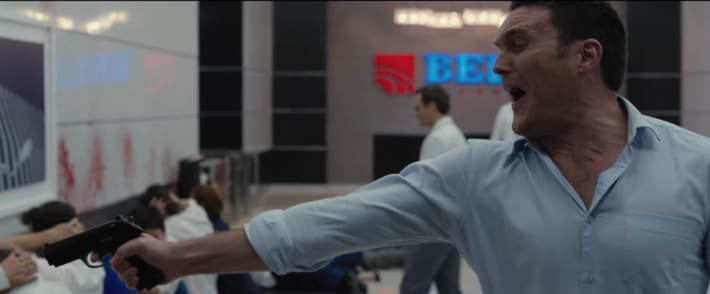
Believe it or not, this doesn’t take place in the U.S.
Another comparison could be made to Michael Haneke’s FUNNY GAMES. It’s another simple plot: two creeps torture a hapless, innocent family, making them play games (see title) in hopes of staving off their inevitable, meaningless deaths. It is incredibly cruel and hard to watch, but not thoughtlessly so. Though dismissed by many as mere “torture porn,” FUNNY GAMES really operates as a commentary on the modern audience’s insatiable lust for violence and suffering, going so far as to have the antagonists directly mock the viewer for sticking around. “Don’t you think it’s enough?” one asks, as they goad the wife into choosing how her husband will be killed, “I mean, you want a real ending, right? With plausible plot development, don’t you?” The viewer knows (or should know) exactly what is going to happen: nothing good can possibly come of this, and yet he watches.
This holds true for THE BELKO EXPERIMENT, as well. Just like with FUNNY GAMES, I should have known what I was in for, but the harshness of it, the straight up viciousness on display, ate at me, and I kept on wondering why I was still watching. The difference, though, is that this film never asks anything of the viewer. There is nothing present to even suggest the viewer reflect on his or her motivations for watching its horrible events unfold. Instead of making some kind of social statement, or poking fun of office life at the very least, THE BELKO EXPERIMENT exists solely to bludgeon the viewer. People don’t just die, they suffer. 80 lives suddenly, abruptly ended with no significance made to the fact, before or after. There is no dignity, no honor. No hope at all. And yet, I wanted this. Maybe I had been tricked, but I owe full responsibility. I chose this.
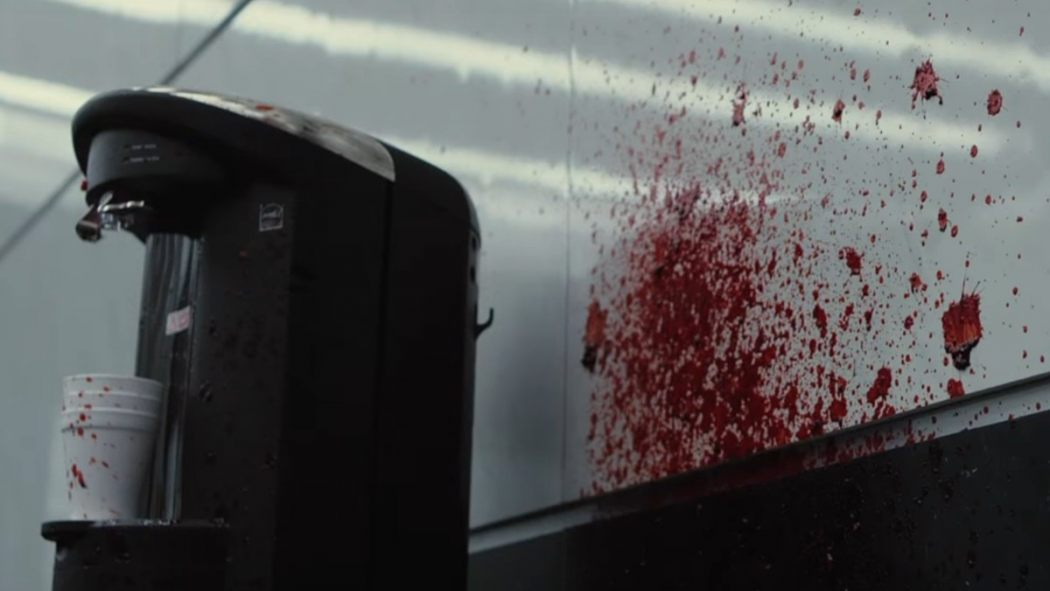
But for real tho, death before decaf
After everything I witnessed, I am reminded of the ending monologue of AMERICAN PSYCHO:
There are no more barriers to cross. All I have in common with the uncontrollable and the insane, the vicious and the evil, all the mayhem I have caused and my utter indifference toward it, I have now surpassed. My pain is constant and sharp and I do not hope for a better world for anyone. In fact, I want my pain to be inflicted on others. I want no one to escape. But even after admitting this, there is no catharsis. My punishment continues to elude me and I gain no deeper knowledge of myself. No new knowledge can be extracted from my telling. This confession has meant nothing.
I am the type of person who puts others before myself. I also believe in the prevailing, fundamental goodness of mankind. I would also like to think I am levelheaded and resolute enough to make it out of a situation such as this relatively okay. But I left THE BELKO EXPERIMENT despondent. I left questioning those beliefs, and feeling like they had been taken and thrown in the dirt. Maybe that was McLean and Gunn’s intention, but why go to such lengths to make such a nasty point? This film is a disavowal, an unceremonious rejection of the human spirit. Merciless and relentlessly cruel, it endears itself to nothing, except, perhaps, sadism. Out of good conscience, I can not recommend this film. There is nothing to be learned. It means nothing.
Verdict: Do Not Recommend

